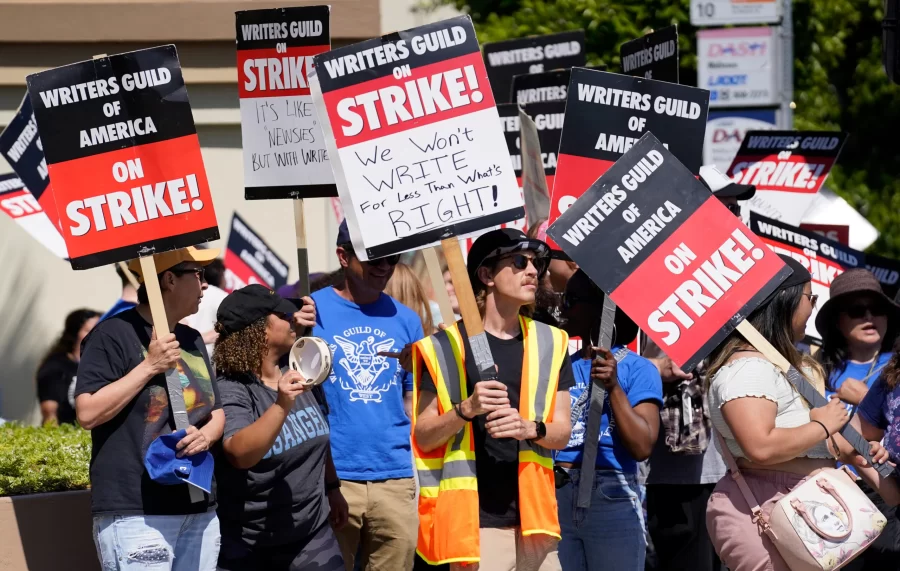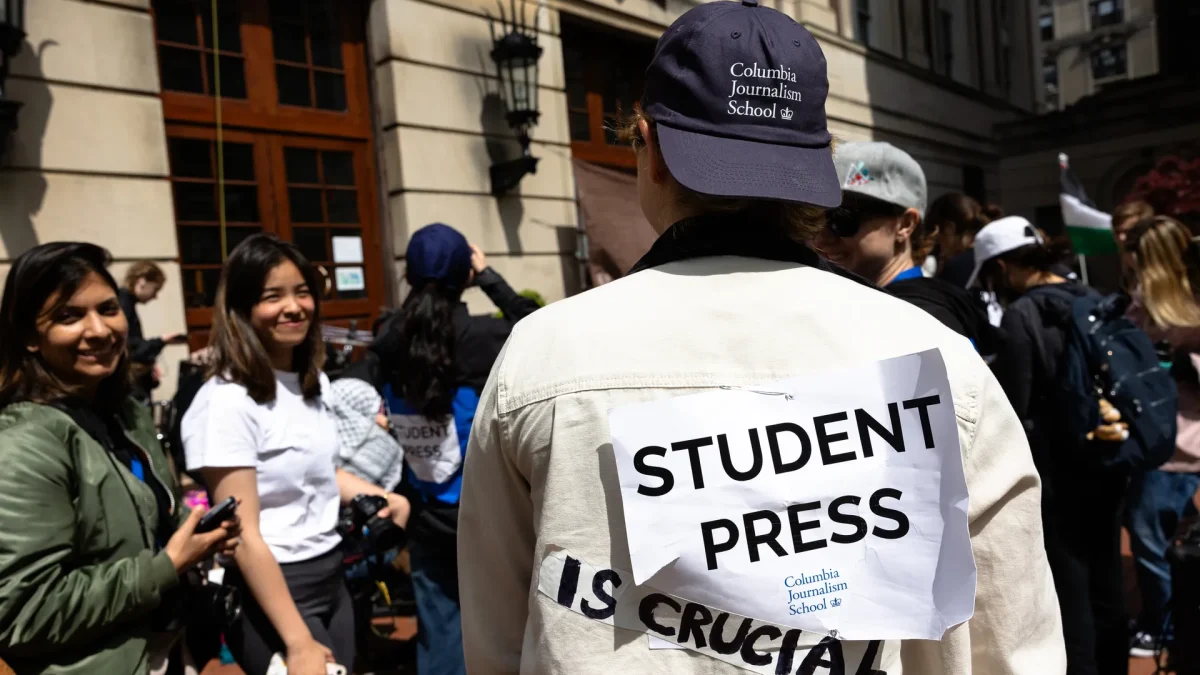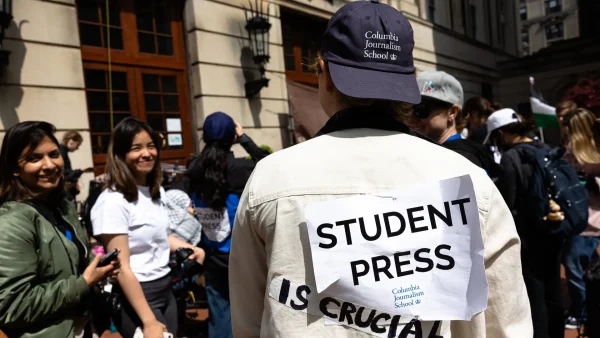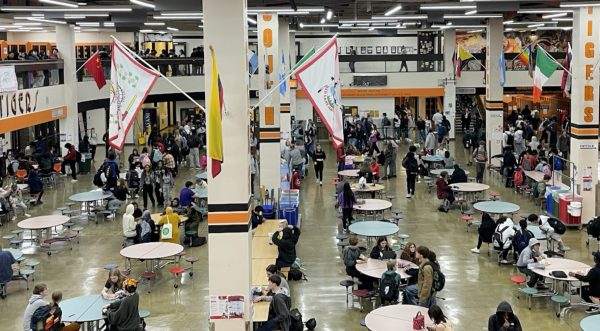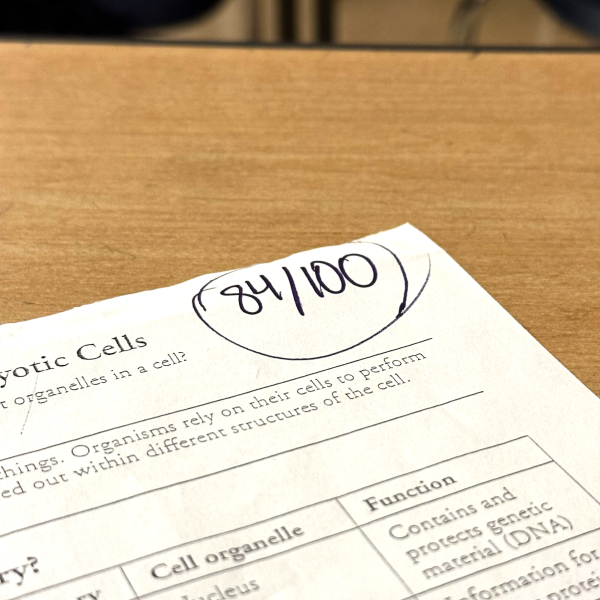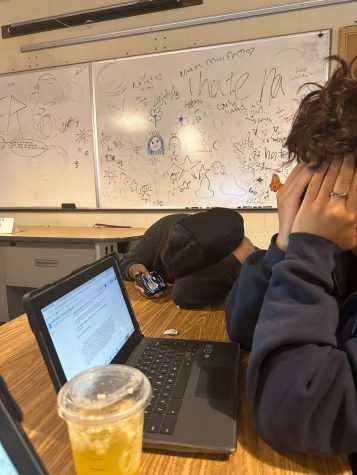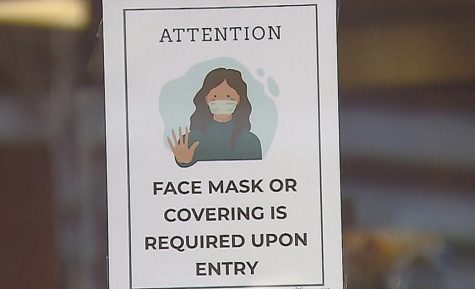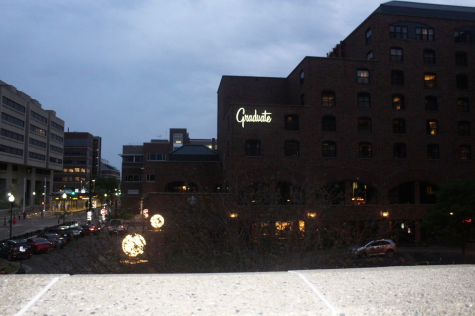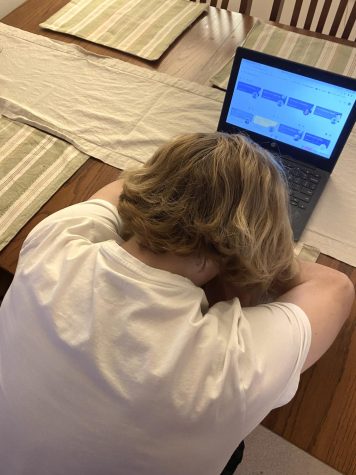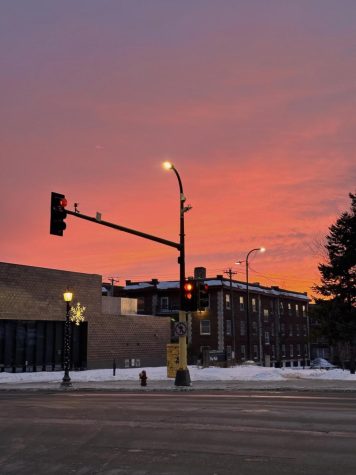Entertainment Strikes and Solidarity
Striking writers picketing outside of Paramount Pictures studio with signs that read: “We won’t WRITE for less than what’s RIGHT,” and “It’s like ‘Newsies’ but with writers.”
May 27, 2023
On May 1st, after contract negotiations with studio and streamers failed to reach an agreement, the Writers Guild of America officially called for a strike. In the weeks since, strikers have been constantly picketing on both coasts, with signs that read “Do the Write Thing,” “I Asked ChatGPT to write a picket sign and it SUCKED,” and many more. This has been a long time coming: it’s been 15 years since the last time a WGA strike was authorized, and conditions for writers have steadily become worse. In the official strike announcement, the WGA Negotiating Committee stated: “Over the course of the negotiation, we explained how the companies’ business practices have slashed our compensation and residuals and undermined our working conditions.” Writers are striking to demonstrate to these corporations that their work is vital to the running of Hollywood, that their work is not replaceable by A.I., and that they deserve fair pay and compensation. Many stars and A-list writers have shown their support, while others remain silent. This strike will impact the production and development of movies, television shows, and late night TV. Now, with Screen Actors Guild members preparing to vote on a strike, and Directors Guild negotiations ongoing and contract expiring in June, Hollywood faces a potential shut down.
This news has sprung a certain amount of indignation from the internet, with many fans disappointed that their favorite shows will face delays. Popular series such as Severance, The Last Of Us, Stranger Things, and Andor all have had production halted. Other shows, namely House of the Dragon (The Game of Thrones prequel series), have continued filming amidst the strike, as their episode scripts were already finished. But a writer’s job isn’t done once a script is submitted. Script changes are often made on the fly during shooting, and writers are usually present to authorize those changes. A week ago, the DGA (Director’s Guild) instructed dual-members of both guilds to make those minor script changes, against the WGA’s strike guidelines. This could point to a lack of unity between creatives, but some dual-members have voiced disagreement with this instruction. “I, and a bunch of other dual DGA/WGA members, have decided we won’t be taking that advice,” wrote writer/director Boots Riley on Twitter. “[Avoiding that work] is a move of solidarity which will make the strike go faster.” Gestures of solidarity from DGA members are incredibly important, not only because it shows a united front for artists, but because directors hold more power than writers on productions.
The last writers strike, in 2007, lasted 100 days. A big part of that strike was about compensation for “new media” (content for or distributed through the internet). Now, with streaming content more or less dominating the entertainment landscape, writers are being compensated even less than before. The WGA claims that with streaming, the Alliance of Motion Picture and Television Producers (AMPTP) share of residuals has cut most writers’ average income compared to 10 years ago. Before streaming dominated TV, writers would make money from the original run of a show as well as whenever reruns would be aired. When the last Minimum Basic Agreement (MBA) was negotiated in 2020, establishing a minimum wage for television and film writers, the agreement only applied to writers for broadcast television shows, such as late night TV. This meant that writers working on streaming shows had to negotiate individually with companies for pay, resulting in much lower wages due to a lack of industry-wide policies or regulations regarding pay for streaming. This is the contract that expired at the beginning of May. The WGA’s new proposal would yield writers around $429 million a year, whereas the AMPTP’s offer would only yield $86 million. This is far from unreasonable, as the strike has already cost Hollywood an estimated $840 million, and it’s still standing. Another proposed change to the contract from the WGA was for each member of a writing team to receive their own pension and health care funds. This was rejected outright with no counterproposal. All of this is practically required for a worker to have a livable and stable job.
While corporations will always find a way to pay workers less than they deserve, there has also been a widespread devaluing of film and tv writers. Streaming has helped to create the idea that everything produced for entertainment can be cleanly labeled as “content.” This removes any notion of artistry from the work, and the creators of such work become only “content creators.” Then it becomes easy for corporations to excuse the conditions they’ve put writers in, as audiences no longer see their work as legitimate. So, some audiences start to feel entitled, that they deserve their favorite “content,” not caring about the livelihoods of the creators that make it possible. This attitude tells studios and streamers that they can get away with not properly compensating artists. If you care about your favorite tv and film franchises, you should be supporting writers, not deriding them. If other guilds are to join with the WGA in striking, it’s important to acknowledge and support this as workers getting what they deserve, and not go on the internet to complain because your favorite TV show got delayed.

